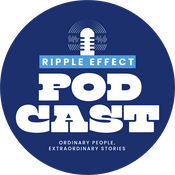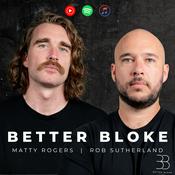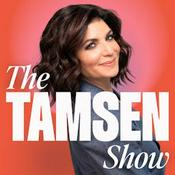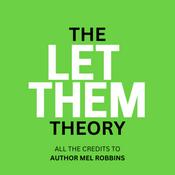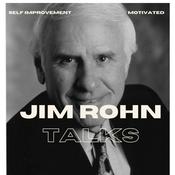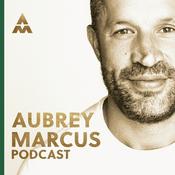288 episodes
- After 250 episodes, we are finally tackling the most controversial figure in the history of anti-industrial resistance: Theodore John Kaczynski.
In this episode, we move past the memes to explore how a 16-year-old Harvard math prodigy was transformed into the world’s most infamous domestic terrorist. We dive into the disturbing "multiform assessments" Kaczynski endured under Henry Murray—experiments linked to the CIA’s MK Ultra program—and how they may have fractured his mind long before he reached the cabin.
Beyond the bombs, we dissect the 35,000-word manifesto, Industrial Society and its Future. We analyze Kaczynski’s signature concepts of the "power process" and "surrogate activities," asking if his diagnosis of modern "learned helplessness" was actually right. But the story doesn't end in the 90s. We trace how Kaczynski’s "anti-woke" rejection of leftism has allowed his ideology to mutate, finding a new home among modern eco-fascists, Telegram accelerationists, and nihilist terror groups like ITS.
Join us as we attempt to separate the valid critique of technology from the "bad radical violence"—because while we agree industrial society is a trap, we’d really prefer a revolution that lets us keep the penicillin.
For sources, transcripts, and to read more about this subject, visit: www.agroecologies.org
To support this podcast, join our patreon for early, commercial-free episode access at https://www.patreon.com/poorprolesalmanac
For PPA Restoration Content, visit: www.restorationagroecology.com
For PPA Merch, visit: https://breadandrosespress.com/
Key Words:
Ted Kaczynski, Unabomber, Industrial Society and Its Future, Uncle Ted, anti-technology, anarcho-primitivism, MK Ultra, Henry Murray, Harvard psychological experiments, power process, surrogate activities, learned helplessness, over-socialization, eco-terrorism, domestic terrorism, radical environmentalism, Freedom Club, technological slavery, eco-fascism, Individualists Tending to the Wild, ITS, accelerationism, anti-civ, Jacques Ellul, critique of industrial society, primitive living, Montana cabin, political philosophy, environmental resistance, deep ecology, technological determinism
Hosted by Simplecast, an AdsWizz company. See pcm.adswizz.com for information about our collection and use of personal data for advertising. - In this episode of the Poor Proles Almanac, we take an extended deep dive into the life, legacy, and contradictions of Edward Abbey, the man who provided the ideological foundation and a literal script for the radical environmental movement. Often viewed as the gritty counterweight to Lewis Mumford, Abbey’s work shifted the focus from urban sustainability to the raw, uncompromising defense of the American Southwest.
We explore Abbey’s fascinating evolution—from his "hammer and sickle" socialist heritage in rural Pennsylvania to his time on the GI Bill, culminating in a philosophy he famously described as "agrarian barefoot wilderness ecofriend." We’ll unpack the explosive impact of his 1975 novel, The Monkey Wrench Gang, which served as both a work of art and a functional instruction manual for "ecotage," detailing everything from disabling bulldozers to raising billboards.
The conversation doesn't shy away from the political paradoxes that defined Abbey. We grapple with his "problematic" stances on race and gender while examining his core ethical code: the rejection of violence against humans in favor of sabotaging the "tools of the technocracy." From his presence at the symbolic "cracking" of the Glen Canyon Dam to the way his ideas were later interpreted by everyone from Earth First! to the Unabomber, we ask: what happens when environmental fiction becomes a blueprint for real-world resistance?
Join us as we navigate the messy, radical ecosystem Abbey helped create—a world where property destruction, wilderness preservation, and a deep disillusionment with the state collide. Is he a hero for the biospheric crisis, or a relic of a complicated past? We’re pulling back the curtain on the man who told us to "keep it wild."
For sources, transcripts, and to read more about this subject, visit: www.agroecologies.org
To support this podcast, join our patreon for early, commercial-free episode access at https://www.patreon.com/poorprolesalmanac
For PPA Restoration Content, visit: www.restorationagroecology.com
For PPA Merch, visit: https://breadandrosespress.com/
Key words:
Edward Abbey, The Monkey Wrench Gang, radical environmentalism, ecotage, monkeywrenching, Earth First!, Earth Liberation Front, ELF, wilderness preservation, American Southwest, Desert Solitaire, Hayduke Lives, eco-defense, sabotage, anti-industrialism, anti-technology, biospheric crisis, Lewis Mumford, Theodore Kaczynski, Unabomber, Glen Canyon Dam, eco-terrorism, property destruction, technocracy, deep ecology, eco-anarchism, Dave Foreman, agrarian barefoot wilderness ecofriend, environmental activism, industrial power, environmental ethics, Forest Service, Rare II, ecological vigilanteism, biospheric collapse, anti-establishment, political paradox, socialist heritage, technocrats, greenwashing, homesteading movement, property damage vs violence, Murray Bookchin, eco-fascism, industrial sabotage, Caterpillar D7 bulldozer.
Hosted by Simplecast, an AdsWizz company. See pcm.adswizz.com for information about our collection and use of personal data for advertising. - In this episode of the Poor Proles Almanac, Andy and Matt explore the intellectual life and enduring legacy of Lewis Mumford, a scholar and activist whose work serves as a vital manual for modern civic, social, and ecological thought. Though he is often pigeonholed as an urban planner, the hosts reveal Mumford as a radical generalist who sought to heal the fractures between science, art, and ecology. Originally trained as an engineer, Mumford’s worldview was transformed by the work of Scottish biologist Patrick Geddes, leading him to abandon sheer technical ability in favor of the "fullness of man’s existence." This shift birthed his vision of a "biotechnic order"—a civilization where technology is no longer an end in itself but is instead oriented toward the culture of life and the self-actualization of the human personality.
The discussion dives deep into Mumford’s critique of the "mega machine," his term for the pervasive ideology of power and bureaucracy that prioritizes quantitative production over living needs. Drawing on the anarchist philosophy of Peter Kropotkin, Mumford advocated for decentralization and the "Garden City" ideal—limited-size towns harmoniously integrated with nature. The hosts contrast Mumford’s human-centered ethics with the rigid energy-efficiency models of the Odum brothers, arguing that an ethical society must self-regulate within its ecological limits rather than succumbing to the cold logic of "big survey" or eco-fascism. By tracing Mumford's influence on figures like Murray Bookchin and Wendell Berry, the episode highlights how these mid-century ideas provide a necessary framework for resisting the centralized "pentagon of power" in our modern era of AI and industrial extraction.
For sources, transcripts, and to read more about this subject, visit: www.agroecologies.org
To support this podcast, join our patreon for early, commercial-free episode access at https://www.patreon.com/poorprolesalmanac
For PPA Restoration Content, visit: www.restorationagroecology.com
For PPA Merch, visit: https://breadandrosespress.com/
To hear Tomorrow, Today, our sister podcast, visit: www.tomorrowtodaypodcast.org/
Hosted by Simplecast, an AdsWizz company. See pcm.adswizz.com for information about our collection and use of personal data for advertising. - In this episode of the Poor Proles Almanac, Andy sits down with Keith Hartwig, the co-owner and founder of Succession Fermentory, a farmhouse-based business located in Cochranville, Pennsylvania. Operating out of the permaculture-based Stella Lou Farm, Succession Fermentory is built on three core pillars: community, local sourcing, and natural fermentation.
Keith discusses their "place-driven" approach to brewing, which utilizes mixed culture and spontaneous fermentation to create beers, meads, and ciders that reflect the unique seasonality and terroir of their region. By eschewing chemical stabilizers and filtration, they allow natural microbes from the environment to transform local ingredients into complex fermented products.
Key topics in this conversation include:
• The American Plum Project: A deep dive into the collaboration with plant expert Zach Elfers to reintroduce and brew with native species like the Chickasaw and Wild American plum, which offer a depth of flavor and acidity far beyond conventional varieties.
• Agroecology and Sourcing: Succession’s commitment to a 60-mile sourcing radius and their efforts to encourage farmers to reintroduce native, disease-resistant plants into the landscape.
• Storytelling through Label Art: How the brewery uses whimsical narratives—such as a Pleistocene ground sloth dispersing pawpaws—to connect customers to indigenous history, deep time, and local ecology.
• Community and Education: Their role in hosting skill-sharing workshops, ranging from tree grafting and beekeeping to controlled meadow burns, all aimed at sinking "deep roots" into the local community.
• Meaningful Growth: Keith’s vision for horizontal growth, including a new project to identify and propagate bio-regionally adapted cider apples that can thrive without heavy chemical inputs.
Whether you are interested in the technical side of wild fermentation or the philosophical side of land stewardship, this episode explores what it means to create a business that serves as a "succession plan" for the landscape.
Where to find Succession Fermentory: You can follow their work on Instagram or join their curated mailing list via their website. If you are in the Philadelphia area, you can visit their tasting room at A Man Full of Trouble Tavern, the city's only remaining pre-revolutionary war tavern.
For sources, transcripts, and to read more about this subject, visit: www.agroecologies.org
To support this podcast, join our patreon for early, commercial-free episode access at https://www.patreon.com/poorprolesalmanac
For PPA Restoration Content, visit: www.restorationagroecology.com
For PPA Merch, visit: https://breadandrosespress.com/
To hear Tomorrow, Today, our sister podcast, visit: www.tomorrowtodaypodcast.org/
Key words: Succession Fermentory, farmhouse brewing, natural fermentation, spontaneous fermentation, mixed culture, agroecology, permaculture, local sourcing, 60-mile radius, community, circular economy, wild American plum, Chickasaw plum, American Plum Project, native ingredients, pawpaw, megafaunal dispersal, deep time, storytelling, label art, horizontal growth, land stewardship, succession, Stella Lou Farm, Zach Elfers, bio-regionally adapted, cider apples, wild yeast, regenerative agriculture, Cochranville, Pennsylvania, A Man Full of Trouble Tavern, Philadelphia, fermentation workshops, tree grafting, controlled burn, sustainability
Hosted by Simplecast, an AdsWizz company. See pcm.adswizz.com for information about our collection and use of personal data for advertising. - In a world dominated by the "unblemished record of total failure" that is mainstream environmental policy, how do we find a path toward actual survival?. In this episode, we sit down with author and activist Peter Gelderloos to discuss his recent month-long project in Brazil, where he worked alongside grassroots movements building an ecological revolution from the ground up.
While international summits like COP 30 continue to push "green growth" and state-led frameworks that preserve capitalist interests, Peter shares a different story from the Atlantic forest and the urban peripheries of São Paulo and Belo Horizonte. We explore the work of the Teia dos Povos (Web of the Peoples) network—an anti-colonial, revolutionary movement reclaiming land and autonomy through agrofloresta (forest gardening).
From the restoration of destroyed plantations into thriving forest ecosystems to the vital international effort of seed sharing, this conversation moves beyond the "depressing news" to highlight effective, eco-centric strategies for adaptation. Peter reveals how indigenous and landless communities are not just resisting the state but are actively "advancing" beyond capitalist society by developing technologies that prioritize collective survival and ecological health.
To learn more, visit:
https://thefinalstrawradio.noblogs.org/post/2025/11/23/voices-in-brazil-for-radical-ecological-struggle-feat-peter-gelderloos-and-gah-te-iracema/
https://truthout.org/articles/the-real-models-for-sustainability-in-brazil-are-to-be-found-outside-cop30/
The Organise article below could be described as "a brief article about the coordination project Peter participated in, Weaving Paths from Colonial Apocalypse to Ecological Revolution" and the ITT article can better be described as a criticism of COP30's attempt to brand itself as a stage that empowers Indigenous peoples
Article about Weaving Paths to Ecological Revolution: https://organisemagazine.org.uk/2025/10/27/further-weavings-international/
Article about Peters time so far in Brazil: https://inthesetimes.com/article/cop30-brazil-farce-not-failure-indigenous-territory-struggles
Antimidia: https://antimidia.org/
Its Revolution Or Death: https://sub.media/its-revolution-or-death-a-three-part-series-from-submedia-and-peter-gelderloos/
Gah Te Iracema of the Kaingang
ANMIGA: https://anmiga.org/en/home-english/
Teia Dos Povos: https://teiadospovos.org/the-web-of-the-peoples/
For sources, transcripts, and to read more about this subject, visit: www.agroecologies.org
To support this podcast, join our patreon for early, commercial-free episode access at https://www.patreon.com/poorprolesalmanac
For PPA Restoration Content, visit: www.restorationagroecology.com
For PPA Merch, visit: https://breadandrosespress.com/
To hear Tomorrow, Today, our sister podcast, visit: www.tomorrowtodaypodcast.org/
Key words:
Peter Gelderloos, Brazil, ecological crisis, ecological adaptation, ecocentric, anarchist, The Solutions are Already Here: Strategies for Ecological Revolution from Below, capitalism, Amazon, lungs of the planet, indigenous peoples, direct action, social movements, MST, Landless Workers' Movement, Teia dos Povos, Web of the Peoples, agrofloresta, forest gardening, green growth, United Nations, COP 30, Belém, Lula da Silva, seed sharing, traditional seed varieties, white corn, food autonomy, anti-colonial, Atlantic Forest, Terra Vista, Bahia, Quilombos, monocrop plantations, carbon accounting, habitat restoration, collective survival, São Paulo, Belo Horizonte, Cleveland, Catalonia, revolutionary movements, abolitionism, representational politics, grassroots solutions, autonomous alternatives, forest restoration, traditional knowledge, climate summit
Hosted by Simplecast, an AdsWizz company. See pcm.adswizz.com for information about our collection and use of personal data for advertising.
More Education podcasts
Trending Education podcasts
About The Poor Prole’s Almanac
Climate Change got you down? Worried about the fact that *everything* seems to be getting worse? Wondering how we got to this point in the first place, and what can we do to build a more resilient future? We take a look at historical pastoral & agricultural societies to see what worked and what didn’t, as well as what resources we have today to make better decisions to build equitable systems. We don’t just discuss ecology and history but also take a leftist perspective on prepping, foraging, homesteading, weapons, community-building, and basically anything that needs discussing during late-stage capitalism.
Podcast websiteListen to The Poor Prole’s Almanac, Begin Again with Davina McCall and many other podcasts from around the world with the radio.net app

Get the free radio.net app
- Stations and podcasts to bookmark
- Stream via Wi-Fi or Bluetooth
- Supports Carplay & Android Auto
- Many other app features
Get the free radio.net app
- Stations and podcasts to bookmark
- Stream via Wi-Fi or Bluetooth
- Supports Carplay & Android Auto
- Many other app features


The Poor Prole’s Almanac
Scan code,
download the app,
start listening.
download the app,
start listening.











